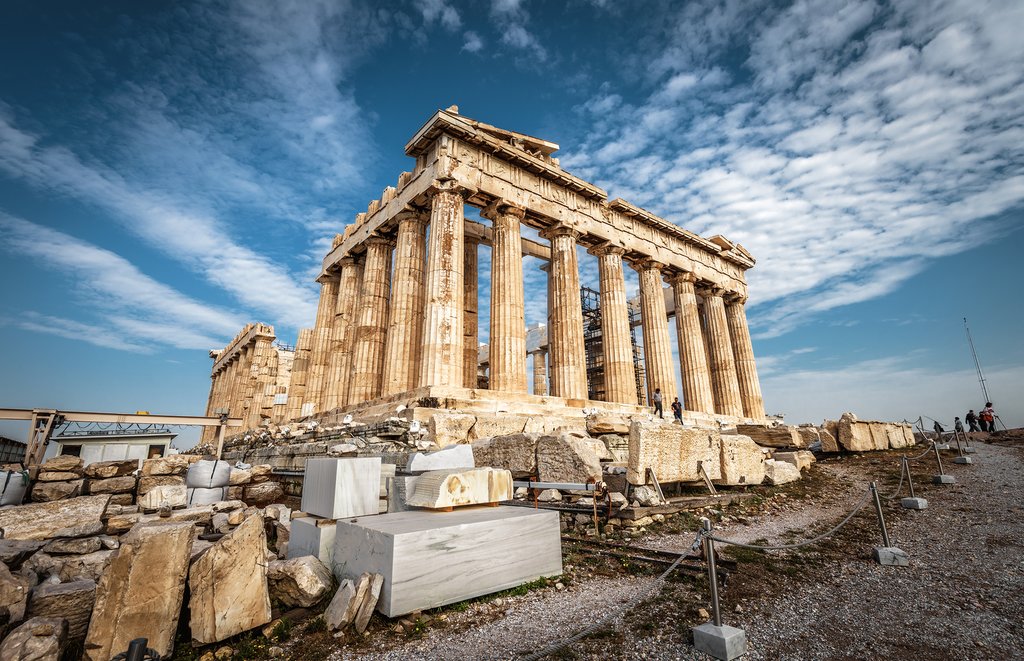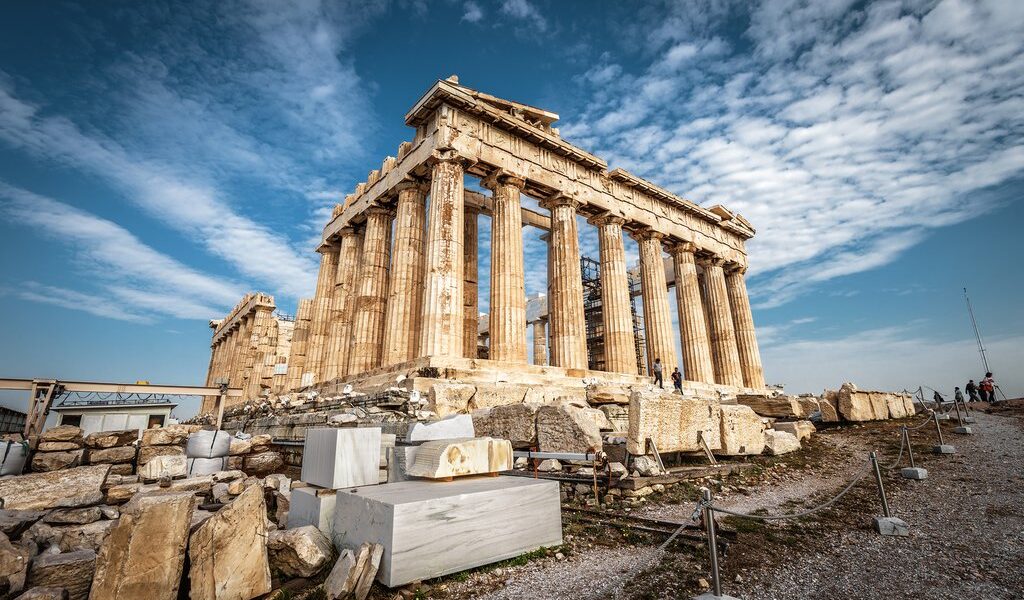
January is the coldest month of the year in Athens—nighttime lows dip to 45°F (7°C)—but it can also be one of the best months to visit due to the lack of crowds. The sun stays out until about 5:30 pm, so there’s plenty of time for daytime tourist activities, the Acropolis and other ancient ruins create beautiful backdrops for bright red sunsets, and the city is alive with art and culture.
## Exploring Athens in January: A Comprehensive Guide
January in **Athens** presents a unique travel experience, distinct from the bustling summer months. While the weather may not be ideal for sunbathing, the city reveals a quieter, more authentic charm, offering a deeper connection to its history and culture.
**Weather in Athens During January**
January firmly holds the title of the coldest month in **Athens**. During the day, temperatures typically hover around 55°F (13°C), occasionally gracing visitors with warmer spells that nudge the mercury towards 60 to 62°F (17°C). However, as night descends, the temperature dips considerably, reaching lows of approximately 45°F (7°C). This necessitates packing appropriately to ensure comfort throughout your stay.
In terms of precipitation, January in **Athens** is characterized by variability. Expect predominantly grey, overcast skies, often punctuated by sporadic rainstorms. Statistically, rainfall occurs on roughly one in three days. The Aegean Sea surrounding **Athens** reflects the chill in the air, with water temperatures averaging around 61°F (16°C). Consequently, swimming and beach-related activities are generally not recommended during this time.
Despite the cooler temperatures, **Athens** enjoys a relatively mild climate compared to other major European capitals such as Paris, Rome, or London. These cities frequently experience sub-freezing temperatures during January. To fully enjoy your visit to **Athens**, particularly if you plan excursions to the coast or mountainous regions, it’s essential to pack a reliable rain jacket and an assortment of warm clothing. Layering is key to adapting to the fluctuating temperatures.
**The Advantage of Fewer Crowds and Lower Costs**
One of the most compelling reasons to visit **Athens** in January is the significant reduction in crowds and travel expenses. Compared to peak season, such as mid-July, flight prices to **Athens** are considerably lower. Moreover, many hotels offer attractive off-season rates, making your trip more budget-friendly. You’ll have the opportunity to explore iconic landmarks like the **Acropolis** and other popular tourist attractions without the frustration of navigating throngs of people. Gone are the days of jostling for photo opportunities or enduring lengthy queues at restaurants and crowded metro stations.
However, it’s worth noting that the period immediately following the December holidays and New Year’s Eve might still see some lingering crowds. If you’re seeking a truly crowd-free experience, consider scheduling your visit later in January.
**Exploring the City and Beyond: Where to Go in January**
The weather conditions remain consistent across **Athens** in January, and the lower crowd levels apply throughout the city. Therefore, you have the freedom to explore any area of **Athens**, provided you’re prepared for the cooler temperatures. The **Acropolis** remains a must-see attraction, and the city boasts a wealth of museums and historical sites to discover. Additionally, January presents an excellent opportunity to immerse yourself in the vibrant atmosphere of **Athens**’ farmer’s markets.
For those seeking a day trip outside the city, **Delphi** is an excellent option. Situated approximately two hours northwest of **Athens**, **Delphi** allows you to explore the awe-inspiring ruins nestled on the slopes of **Mount Parnassus**. The **Sanctuary of Apollo**, also known as the **Oracle of Apollo**, stands as a testament to ancient Greek beliefs, once considered the center of the earth. Keep in mind that **Delphi** tends to be colder than **Athens**, so pack accordingly. Snowfall is not uncommon in the area. If you’re an avid skier, several ski resorts are located nearby.
Another enticing day trip option is **Attica**, a wine region located just outside of **Athens**. **Attica** is renowned as the birthplace of retsina wine, a distinctive Greek wine with a unique flavor profile.
**Must-Do Activities in Athens During January**
**Athens** is a treasure trove of historical and cultural riches, making it a captivating destination year-round. However, during the winter months, when beach activities are less appealing, the city’s ancient ruins take center stage. Be sure to visit the **Acropolis**, home to iconic structures such as the **Parthenon**, **Hadrian’s Library**, and the **Theatre of Dionysus**. The **Royal Palace** also offers a glimpse into Greek history. For museum enthusiasts, the **National Archaeological Museum** and the **Museum of Cycladic Art** provide excellent indoor options for escaping the January chill.
Consider a day trip to the **Oracle of Apollo** in **Delphi**, or indulge in a wine-tasting experience at the **Papagiannakos Winery** in **Attica**. If you’re determined to explore the Greek islands, **Kea** presents a viable option, accessible via a 45-minute drive to **Lavrion** to catch a ferry. Unlike many resort islands that close during the winter, **Kea** boasts a network of scenic hiking and walking trails, ensuring activities even in inclement weather. Moreover, a significant number of restaurants, hotels, and shops on **Kea** remain open throughout January.
**January Events in Athens**
* **New Year’s Day (Jan. 1):** As a public holiday in Greece, New Year’s Day results in widespread closures of businesses and government buildings. While the main celebrations occur on New Year’s Eve, festive events continue throughout the city.
* **Epiphany and Solemn Blessing of the Waters (Jan. 6):** A significant event for many in Greece, Epiphany commemorates the baptism of Jesus in the **Jordan River**, according to the **Greek Orthodox Church**. Coastal celebrations often involve a priest casting a cross into the water, followed by individuals diving in to retrieve it. The successful diver receives a blessing from the priest.
B-1006

